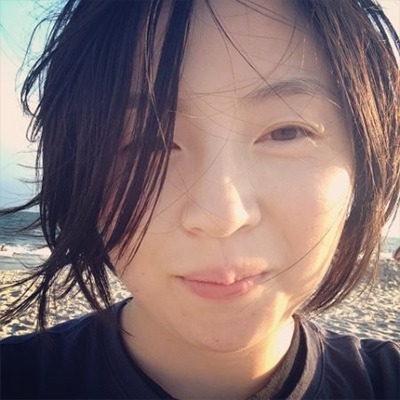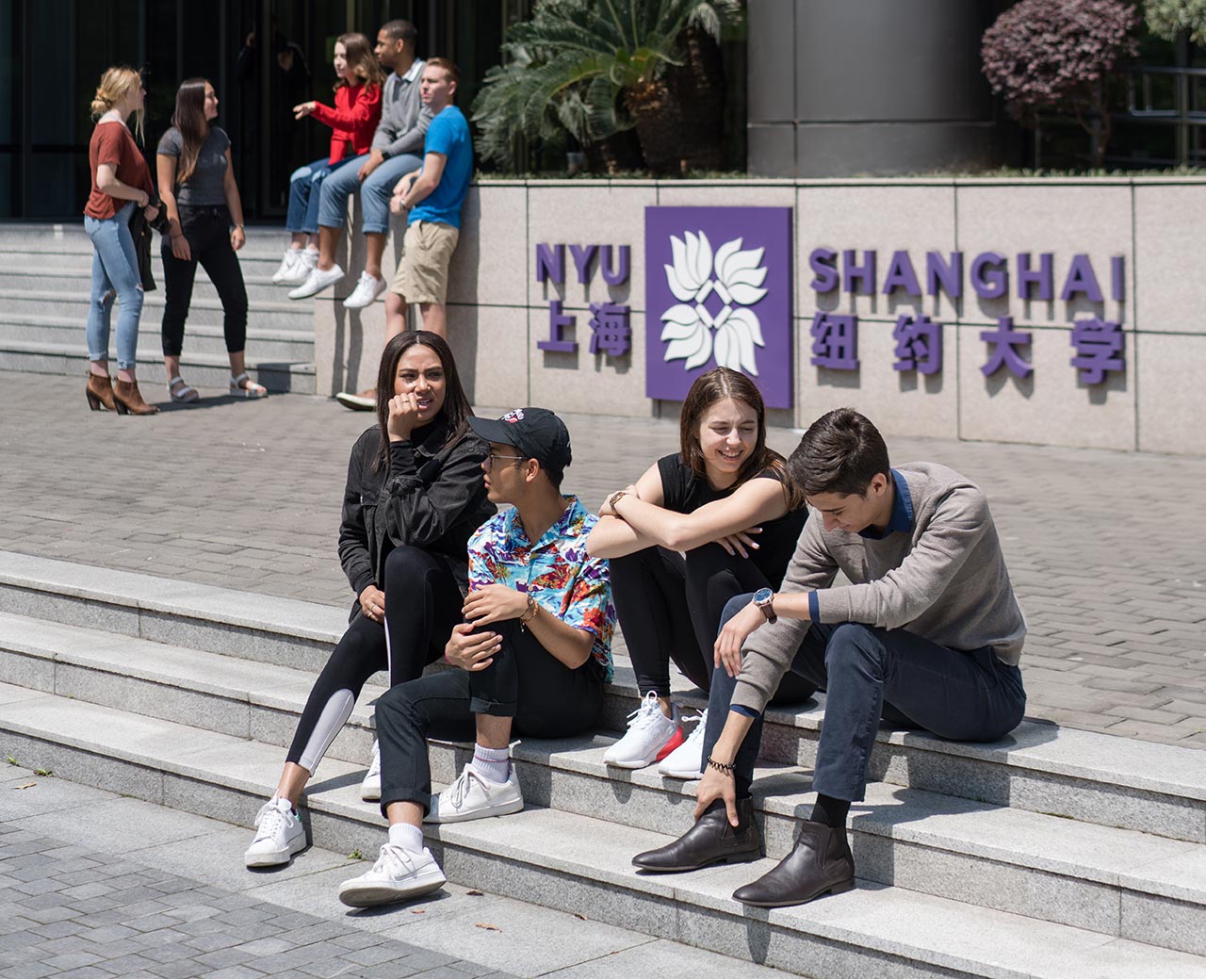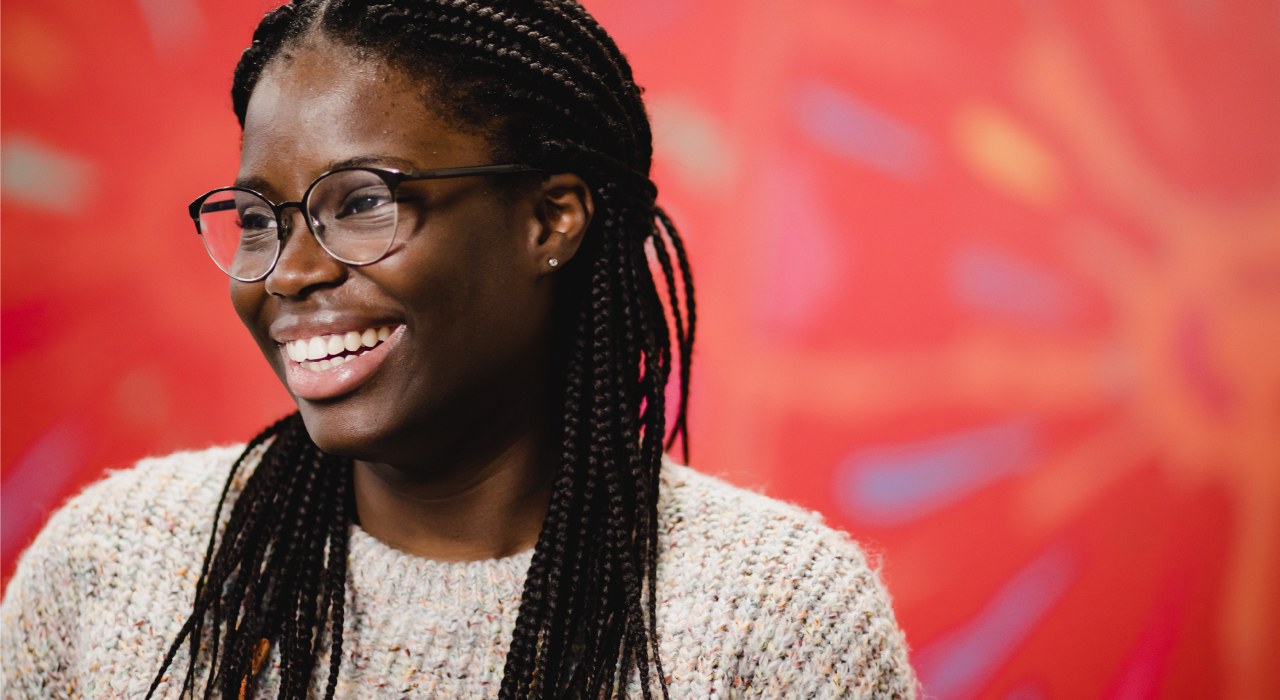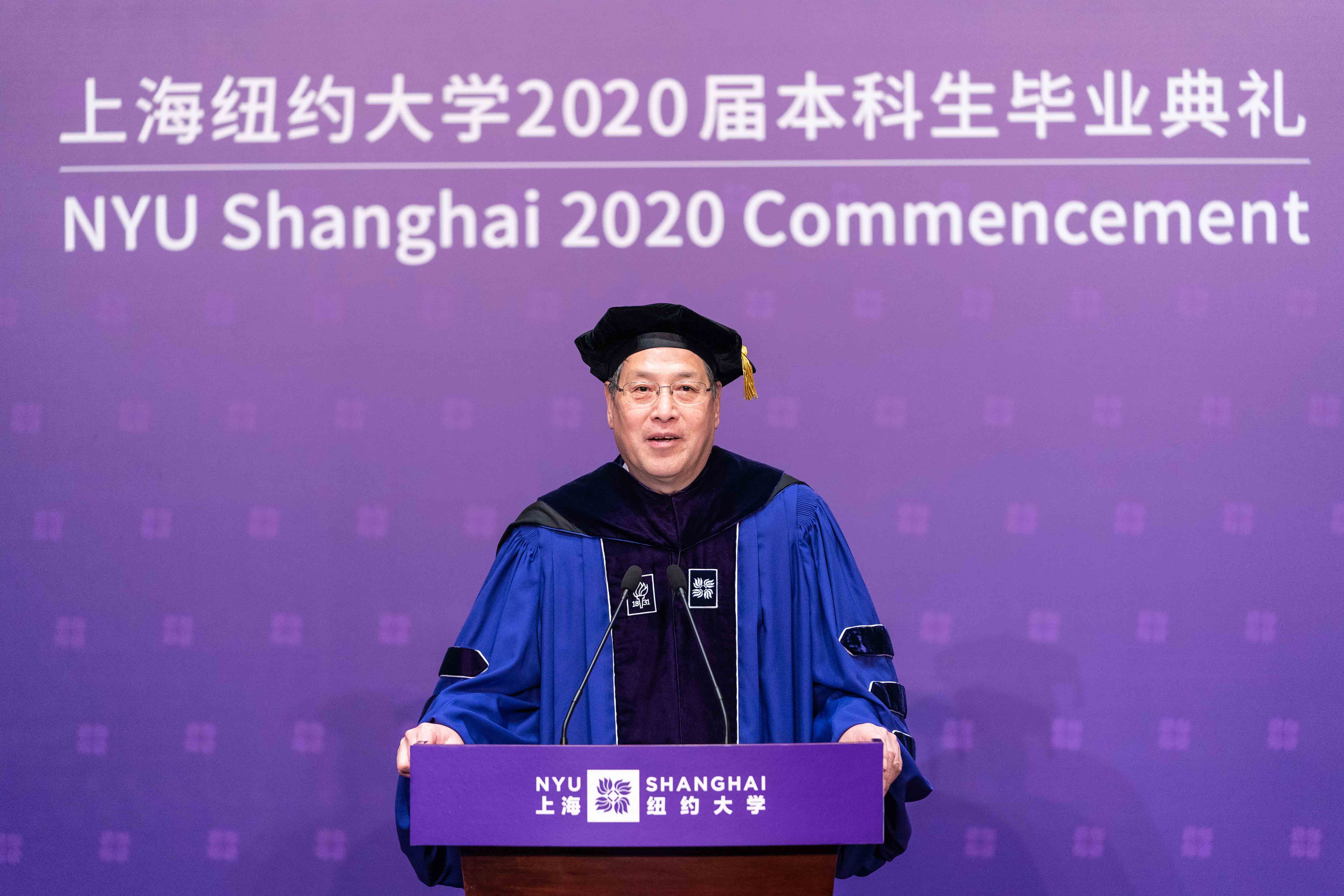
When thinking about where to go to college, so many factors apply. A school’s ranking, the city where it’s located, the different major options, and a student’s prospective careers. But research opportunities are equally important.
Even at the undergraduate level, exposure to research can help you explore academia. And NYU Shanghai places a high priority on fostering research awareness among undergraduates. There are plenty of opportunities to participate in cutting-edge scientific research. And there are many resources to help you realize your ideas. Many students have been able to enhance their academic portfolio, and have a better idea about their future direction because of their research experiences.
Research is not all rocket science
Research doesn’t have to be some kind of complicated undertaking. And it doesn’t have to be far-removed from your everyday life. You can draw from different topics you care about and design a means of studying them. Simply put, you’re identifying a problem, formulating a hypothesis, experimenting to verify it, and drawing a conclusion.
NYU Shanghai undergraduates can conduct their own research through The Deans’ Undergraduate Research Fund (DURF), which provides funding to undergraduates of any major. NYU Shanghai students use the funds for summer research projects in any field of study.
You can apply for a $1,000 research grant by proposing a research project. You can do this as an individual or in a group, as long as you secure a Faculty Mentor. The funds are designed to allow you to stay in Shanghai for the duration of the summer.
For example, NYU Shanghai student Xinyi Gao ’21 centered her research around the question: What happens to our personal data when we die? She decided to use art and media as a way to explore the subject of death and digital bereavement—from how we use technology to talk about death to where our data goes after we die.
She partnered with two of her friends, Yanran Bi ’21 and Zhichen Wang ’21 on a DURF project over the summer. And soon what started as a simple question evolved into an art installation in the making. “We wanted to create a very personal, individual experience on digital bereavement, because our life is not only now physical but digital,” said Gao.
Assistant Arts Professor Eric Parren previously taught the trio in his class Topics in Electronics and Physics Computing: Kinetic Light, and served as their faculty adviser for the project. Parren met with the team every week over the summer, both online and eventually in person.
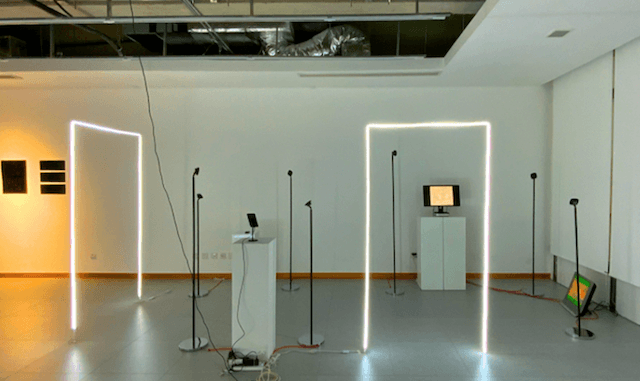
What emerged was a full-scale art exhibition titled Remember Me Digitally: Digital legacy through electronic media. This immersive mixed-media installation debuted in the student gallery, Gallery 1250. The project won “Most Popular” project at NYU Shanghai’s Undergraduate Research Symposium last fall.
Although the art exhibition is complete, Professor Parren still helps his three students towards another opportunity. This time with recommendation letters for graduate school. “Especially in an IMA-type grad school, having a self-directed project exhibited as nice as this is really good for your portfolio,” he said.
Small class sizes nurture faculty-student research collaboration
One of NYU Shanghai’s greatest advantages is having small class sizes. Our one to eight faculty-to-student ratio means that it’s easier to have direct attention, coaching, and mentoring from your professors. And there’s even a chance you can help them with their research.
In the second semester of her freshman year, Xinyue Chen, ’22, decided to challenge herself to an advanced computer science course—Machine Learning. Keith Ross, dean of computer science and engineering, teaches mostly upper class students in this highly competitive course.
“In just the first few weeks of taking Machine Learning, I already had a ton of questions for Professor Ross,” said Chen.“One of them was: Are there any research opportunities in your group? He was encouraging and gave me, as a freshman, the opportunity to participate in his DURF group.”
She then dived into Ross’ collaborative research project that included a team of three other classmates and two PhD students. The group used programming, coding, and running experiments to train computer-simulated robots to do various tasks, such as running.
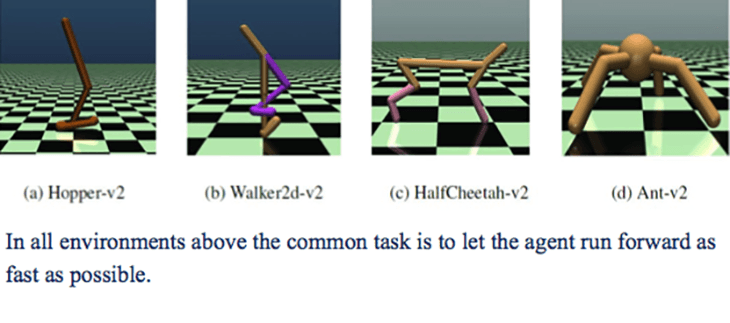
The group would meet at least two or three days a week in a conference room on campus over the summer. There, they’d talk through the progress they were making or any roadblocks that came up with their algorithms.
“We had a good atmosphere in Professor Ross’ group. I think it’s special that NYU Shanghai provides such an opportunity for undergraduate research,” Chen said. “Professor Ross is also very open-minded. He always says we should not hesitate to make any suggestions or say, ‘Professor you are wrong about this specific idea.’ I think each of our group members have the experience of challenging him. And he’s happy if we challenge him—whether we are right or wrong.”
Research experience will help you navigate the direction of your future
The only way to know what your real interests are is to try them out. Research experience at the undergraduate level can go a long way in helping students explore some of their interests more deeply and confirm their future direction.
By the time they reached their junior years, Fangqing He, ’20, and Zheng Zhang, ’20, both double majors in Computer Science and Interactive Media Arts, knew that they wanted to pursue master’s degrees after graduation. But they had only a vague idea of where they wanted to specialize.
The pair decided they wanted to focus on transportation and use some of what they learned in classes such as Natural Language Processing. But they had trouble sharpening their research focus. That’s when they found Assistant Professor of Engineering Zhibin Chen. “Luckily, at NYU Shanghai, once you get an idea, you are encouraged to bring it to real life and faculty are always there to help,” Zhang said.
Chen collected their ideas, narrowed them down, and provided them with concrete research directions based on their academic backgrounds, skill sets, and time available for the project.
Among all the options, He and Zhang said they were most intrigued by the idea of making a more efficient parking navigation app. After trials and errors, the trio worked together to build an intelligent parking app. This matched drivers to parking spots based on their real-time locations and parking preference to avoid competition between drivers.
He and Zhang said that their experience developing the parking app with Professor Chen reshaped their impression of research. “I used to feel that research is very theoretical and a bit detached from real life. But after using optimization theories to build an app, I really saw the practical value in research,” He said.
Now He is in the Master in Design Studies program at Harvard Graduate School of Design. “This program is research based and I really enjoy my research on human-computer interactions. If it wasn’t for the DURF experience, I wouldn’t have confirmed my dream and talents in research.”
He and Zhang said they still keep Professor Chen posted on their studies, research, and life at graduate school. “I’m now studying computational perception and robotics at Georgia Institute of Technology. Some of my focus, such as autonomous driving, is closely related to smart transportation,” Zhang said. “I discuss news in this field with him from time to time, and that is always enjoyable and inspiring.”
We will support your research
I hope these NYU Shanghai student research experiences help you realize that taking on a research project is attainable. As you advance in your studies, you’ll discover that certain subjects might fascinate you enough to dive deeper and explore more about them. No matter how niche or “normal” it seems, if you have your own ideas and the passion to pursue them, NYU Shanghai will provide as many resources possible to help and support your endeavors.
Are you ready to join us and start your own research at NYU Shanghai?
